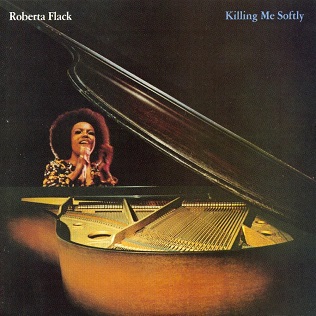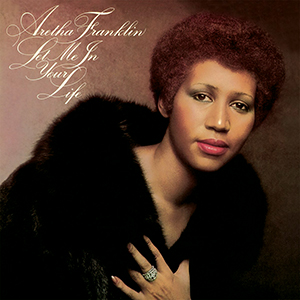
Stevland Hardaway Morris, known professionally as Stevie Wonder, is an American singer-songwriter, musician, and record producer. One of the most acclaimed and influential musicians of the 20th century, he is credited as a pioneer and influence by musicians across a range of genres that include R&B, pop, soul, gospel, funk, and jazz. A virtual one-man band, Wonder's use of synthesizers and other electronic musical instruments during the 1970s reshaped the conventions of contemporary R&B. He also helped drive such genres into the album era, crafting his LPs as cohesive and consistent, in addition to socially conscious statements with complex compositions. Blind since shortly after his birth, Wonder was a child prodigy who signed with Motown's Tamla label at the age of 11, where he was given the professional name Little Stevie Wonder.

Sister Sledge is an American musical vocal group from Philadelphia, Pennsylvania. Formed in 1971, the group consists of sisters Joni, Kim, Debbie, and Kathy Sledge. The siblings achieved international success at the height of the disco era. In 1979, they released their breakthrough album We Are Family, which peaked at number three on the Billboard 200 and included the 1979 US top-10 singles "He's the Greatest Dancer" and "We Are Family". "We Are Family" earned a Grammy Award nomination for Best R&B Performance by a Duo or Group with Vocal.

Minnie Julia Riperton Rudolph was an American soul singer and songwriter best known for her 1974 single "Lovin' You", her five-octave vocal range, and her use of the whistle register.

Eumir Deodato de Almeida is a Brazilian pianist, composer, arranger and record producer, primarily in jazz but who has been known for his eclectic melding of genres, such as pop, rock, disco, rhythm and blues, classical, Latin and bossa nova.

Maurice White was an American musician, best known as the founder, leader, main songwriter and chief producer of the band Earth, Wind & Fire, also serving as the band's co-lead singer with Philip Bailey.

Killing Me Softly is a studio album by American singer-songwriter Roberta Flack, released on August 1, 1973, by Atlantic Records. She recorded the album with producer Joel Dorn for 18 months. The album was dedicated to Rahsaan Roland Kirk.
"Crickets Sing for Anamaria" is the English-language version of "Os Grilos", a song written by Brazilian musician Marcos Valle with his brother Paulo Sérgio Valle.

Philip James Bailey is an American singer, songwriter and percussionist, best known as an early member and one of the two lead singers of the band Earth, Wind & Fire. Noted for his four-octave vocal range and distinctive falsetto register, Bailey was inducted into the Rock and Roll Hall of Fame and the Vocal Group Hall of Fame as a member of Earth, Wind & Fire. Bailey was also inducted into the Songwriters Hall of Fame for his work with the band.
Ithamara Koorax is a Brazilian jazz and pop singer. For several years, she was voted one of the best jazz singers of the world by DownBeat Readers Polls. In 2008 and 2009, Koorax placed third on the "Female Vocalist" category on the 73rd DownBeat Readers Polls, with Diana Krall on the first place and Cassandra Wilson on second,, as well as on the 74th Annual Readers Poll.

Ivana Spagna, also known simply as Spagna, is an Italian singer and songwriter. She is best known for her worldwide hit song "Call Me", released in 1987.

Celebrate! is the twelfth studio album by American band Kool & the Gang. Released on September 29, 1980, the album reached No. 1 on the US R&B chart and #10 on the Billboard 200. The album produced perhaps Kool & the Gang's most recognizable hit song, the #1 chart-topper, "Celebration", which still receives heavy play today over four decades later.

Let Me in Your Life is the twentieth studio album by American singer Aretha Franklin, released on February 26, 1974, by Atlantic Records.

Deodato 2 is a 1973 album by Brazilian keyboardist Eumir Deodato. It features noted session guitarist John Tropea on 4 tracks and virtuoso bassist Stanley Clarke on one song, "Skyscrapers". His version of George Gershwin's "Rhapsody in Blue" was used in Pontiac commercials during the early-1970s. The song reached #48 in Canada in 1973.

Pamala Stanley is an American disco and Hi-NRG singer from Philadelphia, Pennsylvania, United States. She scored several dance/club hits from the late 1970s to the late 1980s. She is the sister of folk-pop recording artist and singer-songwriter James Lee Stanley.
Post-disco is a term and genre to describe an aftermath in popular music history circa 1979–1986, imprecisely beginning with the backlash against disco music in the United States, leading to civil unrest and a riot in Chicago known as the Disco Demolition Night on July 12, 1979, and indistinctly ending with the mainstream appearance of new wave in 1980. During its dying stage, disco displayed an increasingly electronic character that soon served as a stepping stone to new wave, old-school hip-hop, Euro disco, and was succeeded by an underground club music called hi-NRG, which was its direct continuation.

"As" is a song written and performed by American singer and musician Stevie Wonder from his eighteenth album, Songs in the Key of Life (1976). The song was released in October 1977 by Tamla and reached number 36 on both the US Billboard Hot 100 and Black Singles chart. It gets its name from the first word of its lyrics.

"Another Star" is a song written and performed by Stevie Wonder from his 1976 album Songs in the Key of Life. It is the final track on side four of the double LP. The flute player Bobbi Humphrey appears in the last section of the song.
"Are You For Real" is a hit song recorded by the Grammy Award-winning artist and producer Deodato for his 1984 album Motion and released by Warner Bros. Records. The song, which featured vocals by Camille and was written by Rick Suchow, reached the Billboard Top 20 Dance Chart and stayed on for 12 weeks in 1985. The album was re-issued in 2006 by Wounded Bird Records.
"Peter Gunn" is the theme music composed by Henry Mancini for the television show of the same name. The song was the opening track on the original soundtrack album, The Music from Peter Gunn, released by RCA Victor in 1959. Mancini won an Emmy Award and two Grammys for Album of the Year and Best Arrangement. In 2005, the song was inducted into the Grammy Hall of Fame.

Yvonne Lowrene Wright was an American songwriter and vocalist best known for co-writing with Stevie Wonder in the 1970s. Their songs appear on the albums Music of My Mind, Talking Book, Fulfillingness' First Finale, and Stevie Wonder's Journey Through "The Secret Life of Plants".















